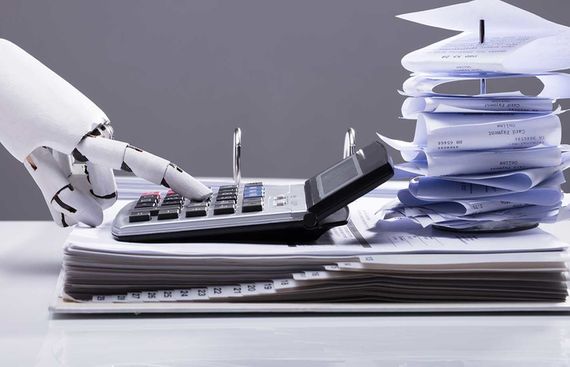Can AI and Robots Revolutionize Taxation?

The Indian government has been embracing technology at a rapid pace across various sectors such as healthcare, defence, transportation and more. Lately, technology has invaded the government services as well, and taxation is one such service. Being the primary source of income for the government, tax is utilized by the government to support all the public sector functions. Therefore, collecting tax from the citizens within a short period and minimizing the number of defaulters enhance the competence of tax collection, which in turn would improve the government's investments in public sector functions. To address this issue, robotics and AI takes the front seat. Using AI and robots the tax department could analyze and minimize tax defaults by monitoring and analyzing the financial data of every individual.
Automate Recurring Process
Process automation is one of the most fundamental and useful applications of AI. By deploying AI-powered robot to automate the recurring tasks would reduce the workload of the tax professionals and allow them to focus on other crucial tasks. Usually, tax professionals use accounting software to calculate the financial data of a company. These regular tasks could be carried out by the robots and this way, the process would be faster and accurate.
Administer Sales Tax
Presently, certain organizations have already incorporated AI to perform various tax functions. Thus, the robots are handling the compliance, nexus information gathering, reserves, taxability mapping, reverse audits, exemption management, and audit documentation gathering. Additionally, robots are ideal for collecting and analyzing high volume data. The robots process much faster than humans producing error-free reports.
Spotting Tax Evasion
Tax evasion would greatly affect the growth of the country. Thus, it is a major concern for many countries across the world. Auditors try hard to find the fraud activities in the tax documents. But, it is not as easy as it sounds. Hence, to find the tax evasion the tax professionals could use machine learning algorithms. AI-enabled systems could be developed and using predictive analytics AI could eliminate tax evasion.
The invasion of robots has stirred up the imagination skills of human beings. AI and robotics' application in the demanding taxation world have eased the most complex and redundant processes. Hence, the government could gradually induce AI and robotics into complex processes as well to increase its efficiency.
